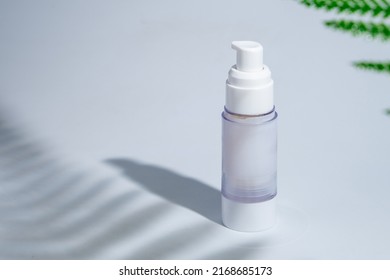

Understanding skin sensitivity is paramount in today’s world of numerous skincare products often containing harsh chemicals. With so many options vying for our attention, identifying and mitigating skin reactions is more important than ever. Skin sensitivity can manifest as redness, dryness, itching, or even breakouts, impacting comfort and self-esteem. This article delves into the intricacies of skin sensitivity, explores the common causes, and provides actionable strategies to navigate the challenging landscape of modern skincare. We’ll explore the science behind reactions, the hidden dangers in products, and ultimately, empower you to create a tailored skincare routine that addresses your specific needs. This comprehensive guide will walk you through identifying potential triggers, choosing gentle products, and establishing a sustainable skincare practice.
Identifying Skin Sensitivity Triggers
Understanding the Root Causes
Skin sensitivity can stem from various factors, including genetics, environmental stressors, and product ingredients. The human skin microbiome plays a pivotal role in maintaining overall skin health, and external factors often disrupt its natural balance. Allergic reactions, which can involve the immune system, are another key contributor to skin sensitivity. Individuals with specific skin conditions, such as eczema or rosacea, are particularly susceptible to adverse reactions to various products. Often, identifying the root cause is the first crucial step in managing skin sensitivities. This involves careful observation of your skin’s reactions after introducing new products or environmental factors.
Common Triggers and Environmental Factors
Certain products, particularly those with strong fragrances, harsh preservatives, or high concentrations of certain chemicals, can trigger reactions in sensitive skin. Exposure to harsh chemicals from daily activities like swimming or certain cleaning products can also lead to unexpected skin sensitivities. Weather changes, especially cold temperatures and extreme UV exposure, can also lead to discomfort in sensitive skin. Stress and other lifestyle factors can often negatively affect the skin’s ability to cope with external stressors. For instance, stress has been linked to acne breakouts and other skin-related conditions in some cases, highlighting the interconnectedness between emotional and physical well-being.
Choosing Gentle Skincare Products
Prioritizing Ingredient Transparency
Prioritizing skincare products with transparent ingredient lists is an essential step in managing skin sensitivities. Look for products that clearly state their components and avoid those with potential irritants. Many manufacturers are now committed to transparency, providing comprehensive information about the origin, composition, and potential effects of each ingredient in their products. By understanding the components of your skincare products, you can readily identify possible triggers that lead to skin reactions and adjust your skincare routines accordingly.
Selecting Mild and Hypoallergenic Options
For those with extremely sensitive skin, opting for hypoallergenic products can greatly reduce the risk of adverse reactions. The skin’s barrier function can be compromised by products containing strong or irritating ingredients, and this can further contribute to the emergence of sensitivities. Mild formulas are usually composed of gentle, plant-derived ingredients and avoid common irritants. Look for products specifically designed for sensitive skin types, with phrases such as “hypoallergenic,” “fragrance-free,” or “non-comedogenic.” Reading reviews and researching ingredients can aid in making informed decisions.
Related Post : How Stress Can Affect Your Skin More Than You Think
Establishing a Consistent Skincare Routine
Gentle Cleansing Techniques
Gentle cleansing techniques are essential for maintaining skin health when dealing with sensitivities. Using harsh cleansers can strip the skin of its natural oils, exacerbating dryness and irritation. Opt for mild, hydrating cleansers specifically designed for sensitive skin. Use lukewarm water instead of hot water, and gently massage the cleanser onto your skin, avoiding harsh scrubbing movements. Be mindful of the amount of time you spend cleansing your skin to avoid over-cleaning. Using a toner can further balance skin pH levels and offer added hydration without irritation.
Moisturizing and Protecting Your Skin
Moisturizers are paramount for sensitive skin, replenishing lost hydration and fortifying the skin barrier. Look for moisturizing creams with gentle ingredients and avoid products with strong fragrances or alcohol. By applying moisturizer immediately after cleansing, you can maintain an optimal moisture barrier. Sun protection is also crucial for safeguarding sensitive skin from harmful UV rays. Applying broad-spectrum sunscreen daily can help prevent further damage and keep your skin healthy.
Consulting with a Dermatologist
Seeking Professional Guidance
When skin sensitivities persist or worsen, consulting a dermatologist is crucial. A dermatologist can accurately diagnose the cause of the sensitivity and recommend a suitable course of treatment. Dermatologists possess extensive knowledge of various skin conditions and can offer tailored advice based on individual needs.
Developing a Personalized Skin Care Plan
Dermatologists can play a crucial role in developing a personalized skincare plan that caters to your specific needs. They can assess your skin type, identify any underlying conditions, and recommend specific products or treatments. This tailored approach can significantly improve your skin health and contribute to the long-term management of skin sensitivities. Dermatologists often have a wealth of knowledge in various skincare techniques and can offer personalized strategies and solutions tailored to specific needs.
Preventing Future Reactions
Identifying Potential Allergens
Identifying potential allergens is vital in preventing future skin reactions. Keep a log of products you use and any reactions you experience to detect patterns and potential triggers. Consider conducting patch tests for new products or ingredients before incorporating them into your routine to avoid adverse reactions.
FAQ
What are the most common causes of skin sensitivity?
Skin sensitivity can arise from various factors. Genetic predisposition, environmental stressors like harsh weather or pollution, and certain ingredients found in skincare products are some common causes. Allergic reactions to specific substances are also frequent contributors to skin sensitivity. Exposure to irritants, like harsh chemicals, can disrupt the skin’s natural barrier function, leading to discomfort and irritation. Understanding the cause can lead to proactive strategies for prevention and management.
What are some key strategies for managing skin sensitivity?
Managing skin sensitivity involves a combination of approaches. Choosing gentle skincare products, establishing a consistent skincare routine, and prioritizing moisturizing are key steps. Identifying and avoiding potential allergens and triggers is crucial. Considering stress reduction techniques can also contribute to maintaining skin health as stress can sometimes exacerbate skin conditions. A crucial step is consulting with a dermatologist to develop a personalized skincare plan for managing your specific needs and conditions. The best practice is to always consult with a dermatologist to determine the cause and recommend appropriate solutions and treatments for your skin sensitivity issues. Understanding the triggers and employing a tailored approach for prevention and management is crucial to effectively addressing skin sensitivity.
In conclusion, understanding skin sensitivity in a world of harsh products is crucial for maintaining healthy, radiant skin. By recognizing the triggers, implementing gentle routines, and choosing products carefully, you can nurture your skin’s unique needs. Remember to consult with a dermatologist if you have concerns about your skin’s sensitivity or experience persistent issues. This will allow you to proactively maintain your skin health and achieve that beautiful glow you desire.